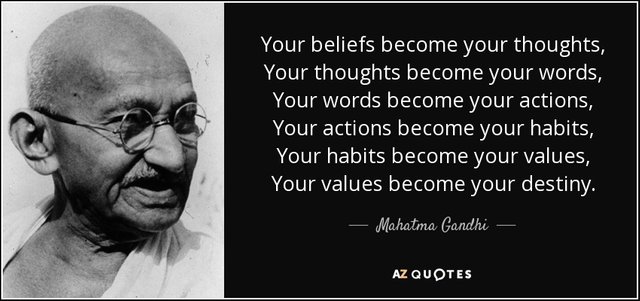Do Our Actions Determine Our Lives? 🌇

Lack Of Control In Our Life
We hold ourselves to an impossible standard. We have a tendency to expect to manage what's primarily not ours to manage. If we tend to like chocolate ice cream to strawberry, no act of will or rational alternative will win over us otherwise. Once somebody or one thing strikes us as irritating or funny or repulsive, these reactions arise unasked.
We don't opt to feel depressed, and can't prefer to feel happy. Sexual attraction to at least one kind of person, and not another, happens whether or not we adore it or not. It’s true that we are able to bit by bit temper negative emotions, especially those which are commonplace around the word such as depression and anxiety, by wilfully altering our thinking and even more reliably by selecting things and relationships that promote feelings we wish. However, on a moment-to-moment basis, feelings come and go of their own accord.
Curiosity Over Criticism
The mistaken belief that one can and will be in control of felt emotions results in unwarranted ethical condemnation, a way that having certain feelings is the mark of a foul person. Self-Condemnation of this type is tragic and may last a lifespan.
By the same token, it's unhelpful to criticise or overanalyse the sentiments of another, e.g., one’s relative or child. He or she didn’t select those feelings, and will not apprehend why they arose. Calling on another to account logically for feelings typically has an aggressive edge; it banks on the false belief that emotions are rational and manageable when they don't seem to be. Analysis of emotions is quite valuable — if done in the spirit of curiosity, not criticism.
Difference Of Behaviour And Emotions
The steps we take and the actions that come of them have real consequences for ourselves and others. They'll get us fired or arrested or divorced. They'll hurt our adored ones and coworkers. This is often why it's thus crucial to differentiate behaviour from internal feelings and emotional states. However many fail to create this distinction, and suppress or deny feelings, typically imperfectly, out of concern of the implications ensuing from working on those feelings.
In keeping with traditional psychoanalytic theory, unconscious effort to avoid awareness of those “dangerous” feelings leads to anxiety and different symptoms. A lot of the value of psychoanalysis and analytically based mostly psychotherapy is experiencing emotions during a safe setting, by separating this experiencing from adverse behaviour and its consequences. (When this separation fails to occur, the technical term is “acting out” if the adverse behaviour happens outside the therapy session, and therefore the lesser-used “acting in” if it happens among the therapy itself.)

Have you studied philosophy ? It was my favoutite subject